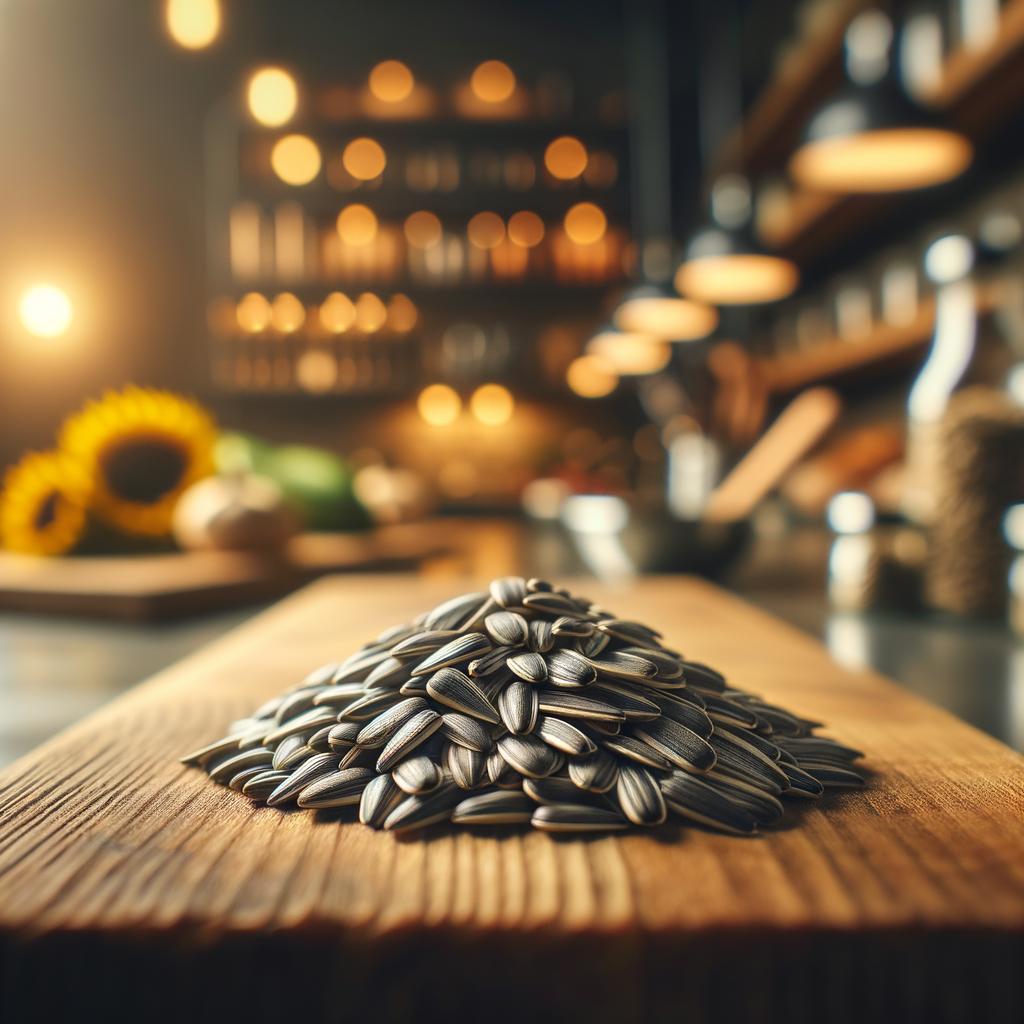Sunflower Seeds

Description
Sunflower seeds, the delightful gift of the beautiful sunflower plant, are small and teardrop-shaped, covered in a black and white striped shell. Once cracked open, the kernel inside is tender, nutty, and slightly sweet, offering a delightful crunch that is both satisfying and nutritious. Their unique characteristic lies in their versatility. Whether eaten raw, roasted, or ground into a butter, sunflower seeds retain their distinct flavor and nutritional value, setting them apart from other seed varieties.
Primary Uses
Sunflower seeds are a culinary chameleon, finding their way into a wide array of dishes across the globe. They can be sprinkled onto salads for added crunch, ground into a flour for gluten-free baking, or even transformed into a creamy, nut-free butter. In Eastern European cuisines, they are often used in breads and desserts, while in the Middle East, they are a key ingredient in tahini. Beyond their culinary uses, sunflower seeds have also been used in traditional medicines for their high vitamin E content and are often associated with happiness and positivity in various cultures due to the sunflower's bright and cheerful appearance.
History
The sunflower plant, from which the seeds are harvested, is native to North America and was a significant food source for indigenous tribes who ground the seeds into meal for bread, mush, and cakes. Spanish explorers then brought the seeds to Europe in the 16th century, where they quickly gained popularity. Over time, sunflower seeds have evolved from a simple snack food to a versatile ingredient used in a multitude of ways. There's a romantic notion tied to the sunflower itself, always turning its face towards the sun, a symbol of positivity and resilience, much like the hardy seed it produces.
Nutritional Information
Sunflower seeds are a nutritional powerhouse, packed with a wealth of vitamins, minerals, and healthy fats. They are an excellent source of vitamin E, a powerful antioxidant, and also provide substantial amounts of magnesium, selenium, and fiber. With their high protein content, they are a satisfying addition to a balanced diet. When compared to similar seeds, like pumpkin or flax, sunflower seeds hold their own, offering a comparable nutritional profile with a unique flavor that is all their own. However, like all seeds, they are high in calories and should be consumed in moderation.

